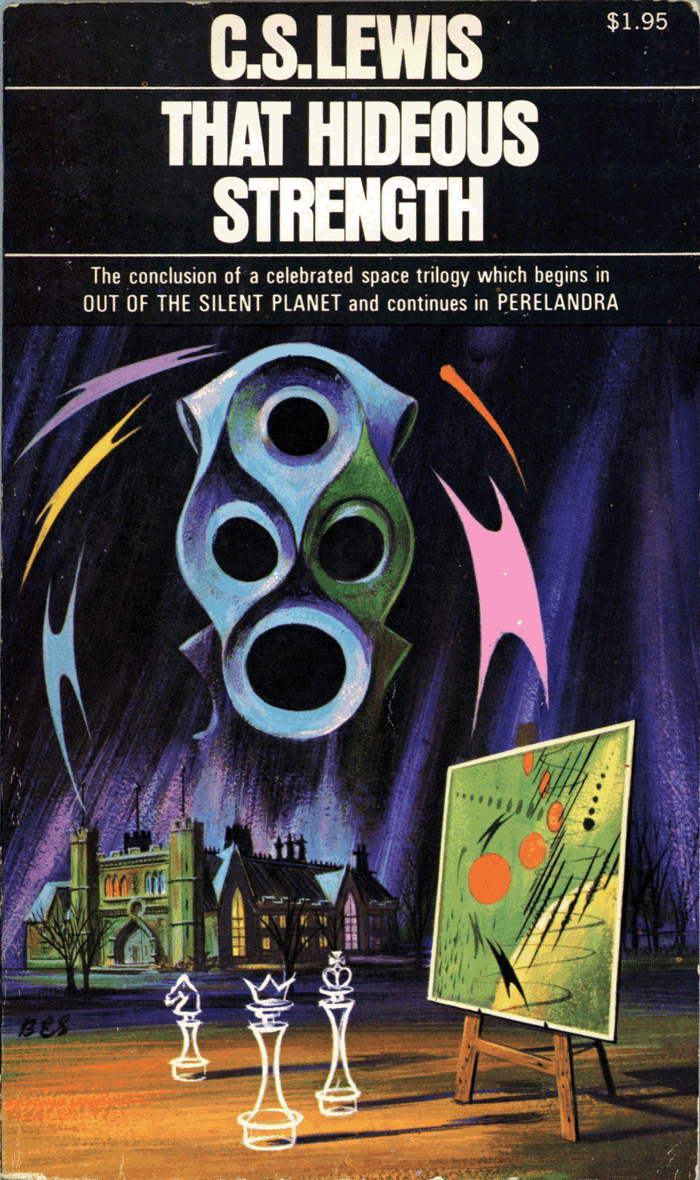That Hideous Strength
Series: Space Trilogy 3
Reviewed date: 2020 Sep 21
Rating: 1
382 pages
"What should they find incredible, since they believed no longer in a rational universe? What should they regard as too obscene, since they held that all morality was a mere subjective by-product of the physical and economic situations of men?"
[C. S. Lewis, That Hideous Strength, 1945]
The third book in Lewis's Space trilogy starts off slowly. It's nearly 200 pages in before the action begins to pick up. Compared to the previous two books, That Hideous Strength is more frightening because it's about a more mundane kind of evil, the kind of evil we see happening every day: the normalizing of immorality, the dismissal of obscenity and decency and virtue as concepts. It happens slowly and subtly, but behind it is a malignant evil with power we can scarcely imagine.
What Lewis wrote about in 1945 is still here. Learned men telling us that morality is nothing but a subjective idea that we must shrug off. All is permissible, nothing is illicit, no desire too prurient or out of bounds.
Fortunately that power is not the greatest power. God is sovereign. We must endeavor to be on His side, for he shall surely win.
Disappointing
This one is boring, slow, and it never truly gets good. The slow simmering tension rises and I was expecting a dramatic confrontation, but the climax is nothing but a bit of slapstick comedy at a dinner party. It's bitterly disappointing. This one should have been a non-fiction work of philosophy, not a novel.
The physical sciences, good and innocent in themselves, had already ... begun to be warped, had been subtly manœuvred in a certain direction. Despair of objective truth had been increasingly insinuated into the scientists; indifference to it, and a concentration upon mere power, had been the result.
...
Perhaps few or none of the people ... knew what was happening: but once it happened, they would be like straw in fire. What should they find incredible, since they believed no longer in a rational universe? What should they regard as too obscene, since they held that all morality was a mere subjective by-product of the physical and economic situations of men? The time was ripe.
From the point of view which is accepted in hell, the whole history of our Earth had led up to this moment.
“Sir,” said Merlin, “know well that she has done in Logres a thing of which no less sorrow shall come than came of the stroke that Balinus struck. For, sir, it was the purpose of God that she and her lord should between them have begotten a child by whom the enemies should have been put out of Logres for a thousand years.”
“She is but lately married,” said Ransom. “The child may yet be born.”
“Sir,” said Merlin, “be assured that the child will never be born, for the hour of its begetting is passed. Of their own will they are barren: I did not know till now that the usages of Sulva were so common among you. For a hundred generations in two lines the begetting of this child was prepared; and unless God should rip up the work of time, such seed, and such an hour, in such a land, shall never be again.”
